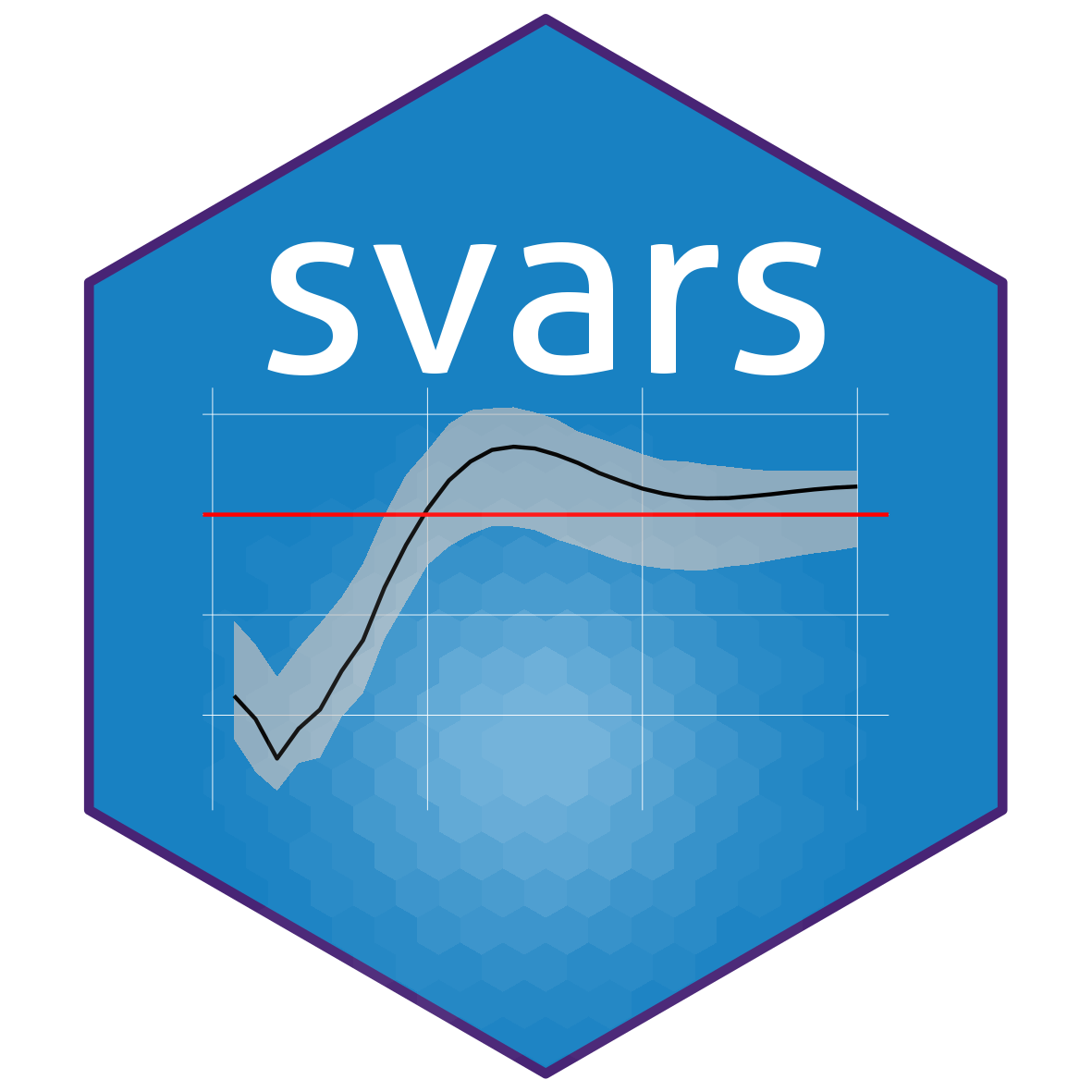Biography
I am an applied economist and Assistant Professor at the Department of Agricultural Economics at Purdue University.
My research interests are rooted in agricultural, environmental & resource economics. Currently, I work on uncertainty in international trade global value chain participation, agricultural market shocks, and socio-environmental trade-offs in agricultural production systems. My research often has policy focus and features data-science approaches.
- Agricultural commodity markets, Global Value Chains & Trade
- Environmental efficiency & productivity
- Statistical programming
PhD in Economics, 2020
University of Göttingen
MA Development Economics, 2016
University of Göttingen
BSc Economics and Social Sciences, 2013
Free University of Bozen-Bolzano
Peer-reviewed Publications
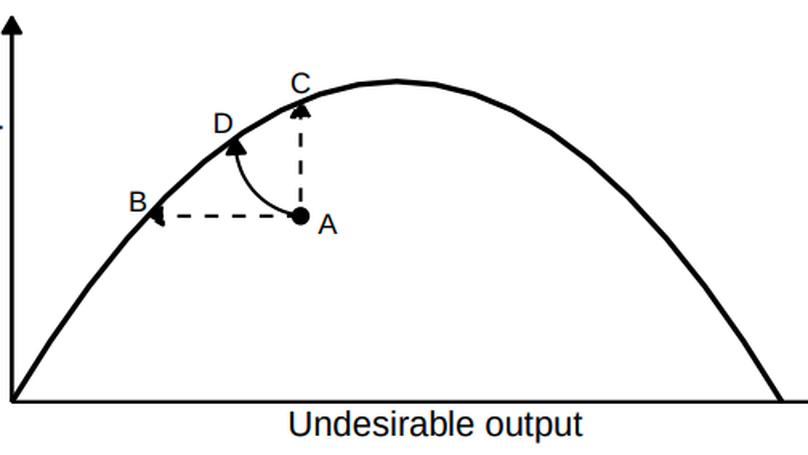
Oil palm remains an important source of rural income in South East Asia. At the same time, Indonesia has become a hotspot for large-scale species extinction and a loss of biodiversity in favour of agricultural production. The present study sets out to assess the environmental performance of smallholder oil palm production with respect to biodiversity. Using a panel dataset that combines conventional farm data together with an account of plant diversity, we estimate a restricted hyperbolic environmental distance function. We integrate loss of biodiversity as an undesirable output into the production model which allows explaining shortfalls in environmental performance and the derivation of shadow prices of biodiversity conservation. We find a substantial environmental inefficiency, which is partly explained by both chemical and manual weeding practices, highlighting the potential for improvements in both the environmental and the economic dimension. Moreover, the value for conserving one species of the average biodiversity on a farmers plantation was $324$ USD in 2018. Payments for ecosystem services schemes could be a viable policy response to conserve meaningful levels of biodiversity while simultaneously allowing smallholders to increase palm oil output. In general, addressing drivers of environmental performance in PES designs amplifies its effect without reducing production levels.
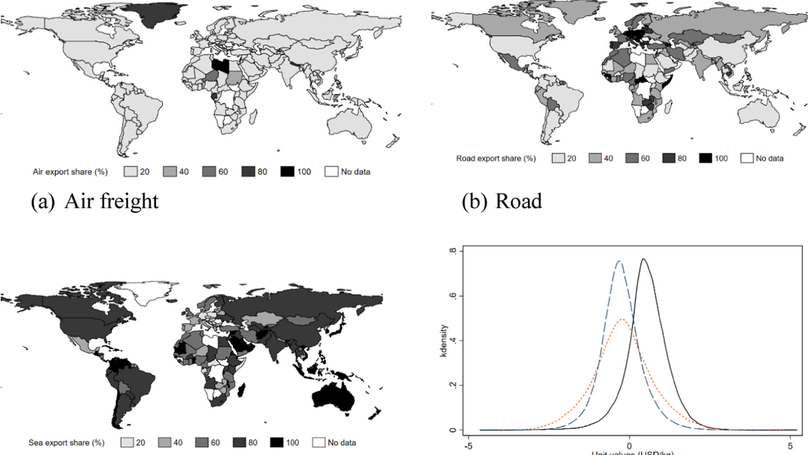
We use a novel dataset that details trade flows between countries by mode of transport to estimate mode-specific elasticity of trade costs on food product prices. We confirm the finding of others that markups increase with increasing tariffs, but also find heterogeneous effects across modes of transport, where this effect is least pronounced for air-shipped products.
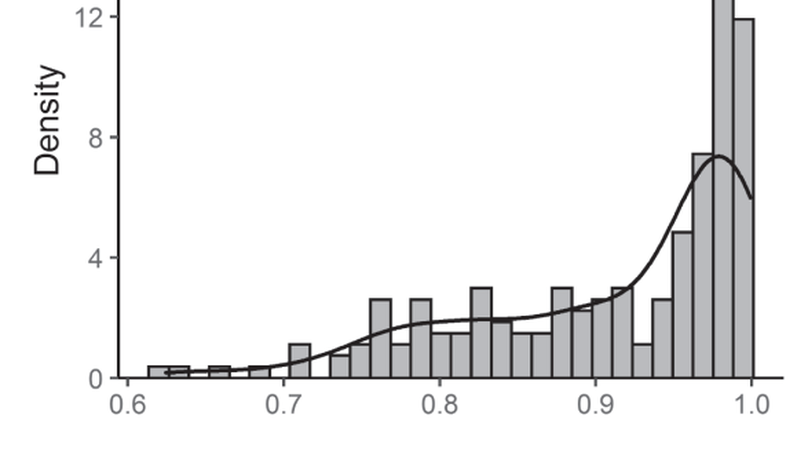
Increasing dairy farm productivity while simultaneously mitigating greenhouse gases emissions is a common policy goal in many countries. In this paper, we assess trade-offs and synergies between these goals for pasture-based dairy farms in Brazil. We apply stochastic frontier analysis within a translog hyperbolic distance function specification, including methane emissions as an undesirable output and accounting for annual climatic types. Our results indicate that on average, farmers can improve their production by 9.4% while simultaneously reducing methane emissions by 8.7%. The adoption of more productive cows and improved pastures have a positive effect on the environmental efficiency of the farms. Farmers operating in warmer and dryer climate types tend to have lower environmental efficiency. Calculating shadow prices for methane emitted on farms indicates that the mean abatement costs of methane are US $2,254 per tonne. Overall, by reducing inefficiency, dairy farmers can significantly increase farm production while simultaneously reducing emissions and thus contribute to national commitments to eradicate hunger and mitigate methane emissions.
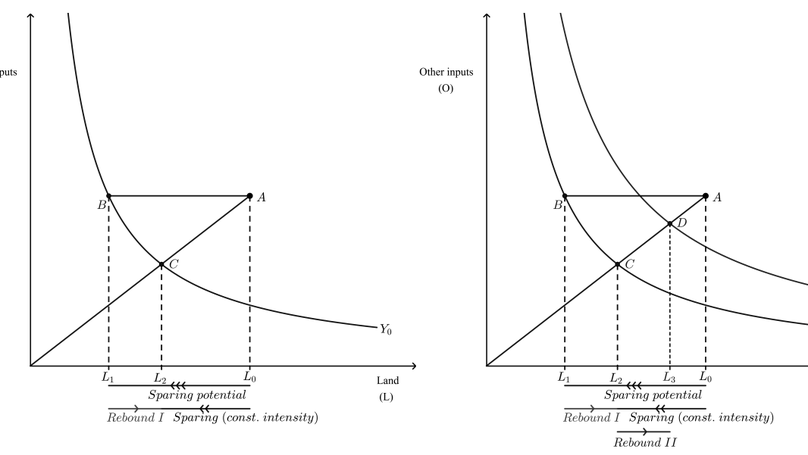
This study investigates the rebound effect in agriculture resulting from increased technical efficiency. In a palm oil smallholder case study, we find that although net land savings prevail as a result of increased technical efficiency, expected land savings are offset by about half due to farmland expansion.
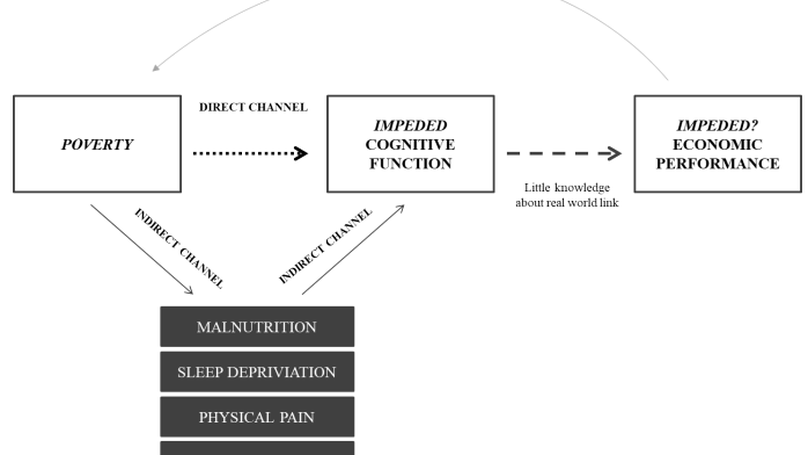
We ask whether the level of cognitive function can help to explain the differences in economic performance of the poor. Our findings suggest that impeded cognitive function results in a negative economic performance feedback loop, which can be a reason why some farmers appear to be stuck in poverty while others manage to escape it.
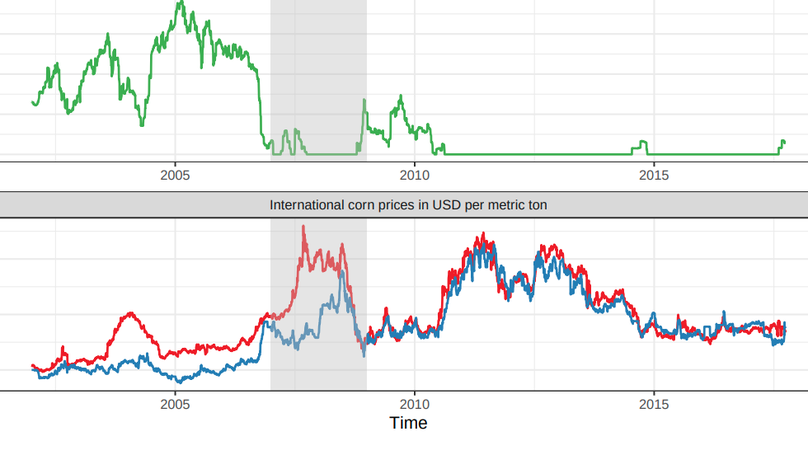
Here we investigate the effects of the variable corn import levy of the EU on domestic and foreign price volatility. We find that the variable import levy reduced corn price volatility in the EU market, while significantly increasing volatility to the same extent in Argentina.
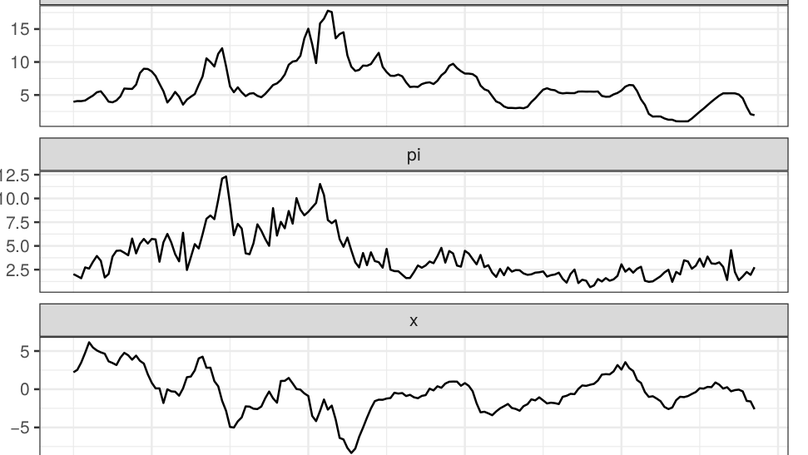
We present the R package svars which implements statistical identification techniques for Structural vector autoregressive (SVAR) models. The package offers both heteroskedasticity based and independence based techniques. Moreover, it includes a rich variety of analysis tools that are well known in the SVAR literature.
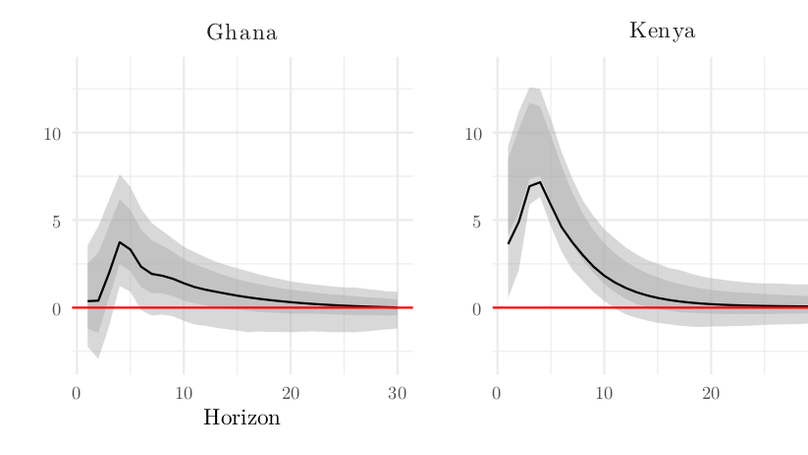
In this paper we use structural vector autoregressive (SVAR) models to investigate the impacts of global oil market shocks on local corn prices in several SSA countries. Our key findings are that unlike US or global corn markets, African corn markets are much less sensitive to the impacts of oil-specific demand shocks, instead, disruptions in global oil supply can lead to an increase in food prices in several markets.
Work in progress
AgEconMeet
This is a European Network of Early Career Agricultural Economists. We meet online once a month (join google group for invites) and facilitate networking among European early-career researchers - also in times of virtual meetings. We organize meetings on early career related topics for agricultural economists as well as an EAAE Seminar on October 5-7 in Göttingen.
Contact
- bdalheim@purdue.edu
- +1 (765) 494-4191
- 403 Mitch Daniels Blvd, West Lafayette, IN, 47907
- 6th Floor
- Upon request
- DM Me
- Skype Me
